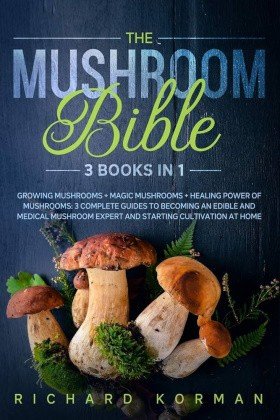The Netherlands, formerly called “a hotbed for drugs prohibited everywhere,” banned the purchase of mushrooms in 2001 and new mushrooms in 2008. In different nations, it could be legal to possess them not market them.
Some states, like Mexico, create exceptions to bans on magical mushrooms when utilized by indigenous people in spiritual ceremonies.
CHAPTER THREE
BENEFITS OF MAGIC MUSHROOMS
Soft light. Comfortable furniture. Art decorating the walls. With the untrained eye, this setting is apparently a living area. But it's not. It is a research facility especially designed to evoke ease and comfort.
Let’s imagine that a psilocybin treatment session is taking place. On the sofa lies a different patient. Gentle music is playing. Two members of this research team exist to help direct the session within the duration of eight hours per day. Much of the time is going to be spent in silent introspection.
Trained health care staff are onsite, if anything unexpected occur.
Regardless of the trappings of normalcy, this treatment session is anything but. Psilocybin, the most active ingredient contained in magic mushrooms or shrooms, is a potent psychedelic.
Despite being roughly 100 times stronger than LSD, it is effective at shifting perception of time and space, inducing visual distortions, chills, and mysterious experiences.
Unlike marijuana, that has witnessed a dramatic change both concerning support of legalization and recognized therapeutic applications, or MDMA, that has captured headlines recently because of its capacity to deal with PTSD
(some scientists believe that the drug could meet Food and Drug Administration approval when 2021), psilocybin lacks the exact same amount of cultural cachet.
Also, you can be forgiven for believing that shroom are only a remnant of this surplus of the 1960s.
However, make no mistake: psilocybin has numerous future health benefits.
Studies have shown psilocybin to possess potential to deal with an assortment of psychiatric and behavioural disorders, though it's still to get FDA approval.
Its possible positive effect may include alleviating depression and obsessive-compulsive disorder, stopping smoking and alcohol dependence, heroin dependency, cluster headaches, along with cancer-related or alternative
terminal mental distress.
High-profile campaigns have also surfaced recently in Denver, Colorado, and Oregon into decriminalizing psilocybin mushrooms. But specialists say they are not likely to pass.
Psilocybin mushrooms remain a Schedule I drug based on The Drug Enforcement Administration, meaning they are categorized as having "no currently accepted medical use and a higher potential for misuse." Additional Schedule I drugs include marijuana, MDMA, and LSD.
However, despite societal stigma and legal red tape, scientists have been forging ahead with clinical trials for FDA approval. Dr George R. Greer, co-founder and president of this Heffter Research Institute, a non-profit research centre that focuses on the therapeutic applications of psychedelics, especially psilocybin, describes his motives:
"Our assignment is twofold: you to perform research which helps us understand that the brain, the mind, the way all this works, and two, to reduce discomfort via therapeutic use of psychedelics."
The doctor is currently concentrated on two main areas of psilocybin study: dependence and cancer-related psychiatric ailments. Cancer-related psilocybin treatment is regarded as one the most promising areas of study for your medication.
But thinking about the large number of possible indications for psilocybin, it is important to remember the quantity of research also varies widely, from pilot research to stage II or III approval trials from the FDA.
Here Is what the current study says about psilocybin remedy for a few potential symptoms.

DEPRESSION
Depression is one of the most investigated signs for psilocybin treatment.
Since Healthline formerly reported this past calendar year, psilocybin treatment was granted "breakthrough treatment" designation from the FDA for treating depression. The Usona Institute, a research centre, is now in the planning phases of the stage III trial, and which will probably begin this season.
The FDA has granted a Breakthrough Therapy designation to the Usona Institute for its trial use ofpsilocybin in the treatment of major depressive disorder (MDD), with the view of accelerating trialstesting its efficacy.
SMOKING CESSATION AS
WELL AS OTHER ADDICTIONS
In a small pilot research project by Johns Hopkins University Trusted Source, researchers discovered that psilocybin treatment considerably improved appreciably from smoking on a 12-month follow-up interval.
Matthew Johnson, PhD, Associate professor of psychiatry and behavioural sciences at Johns Hopkins University School of Medicine, directed that research.
Based on his findings, psilocybin has potential to deal with other means of substance abuse, such as cocaine and alcohol dependence.
"The overall notion is that the character of the ailments is really a narrowed mental and behavioural ministry," he advised Healthline.
"So, [psilocybin] at well-orchestrated sessions [has] the ability to shake somebody from the regular to provide a glimpse of a bigger image and generate a psychological plasticity by which people may step out of these issues."
In reality, a small open-label study from Trusted Supply on psilocybin and alcohol addiction, found that after therapy, both drinking and heavy drinking diminished.
Researchers at Alabama are currently now conducting trials to get psilocybin treatment on cocaine dependency.

Johns Hopkins Launches Center For Psychedelic Research


























